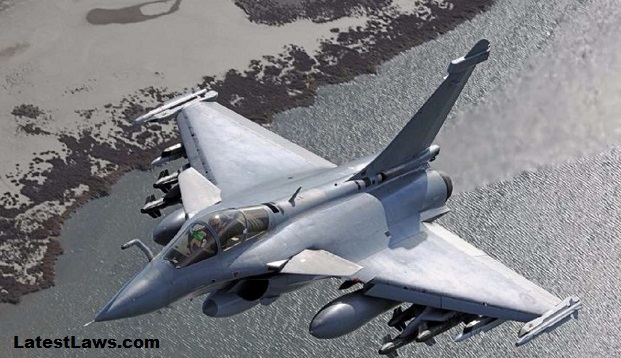March 15, 2019:
On Thursday, the Centre told the Supreme Court that an important reason for keeping the price of Rafale fighter aircraft a secret was to prevent other countries, which have also bought the jets, from questioning France why the planes were sold cheaper to India.
Attorney General KK Venugopal told a bench of Chief Justice Ranjan Gogoi and Justices Sanjay K Kaul and K M Joseph: "The same Rafale is given to other countries. If the price of Rafale jets is revealed, they will ask how France sold it cheaper to India. That is why the price is kept secret."
This is the first time the Govt has said in the SC that it got the 5th generation Rafales at a price cheaper than what other countries that purchased the fighters, like Egypt and Qatar, might have paid.
Venugopal also said the jets were bought on a government-to-government deal and the price was kept secret.
"Revealing the price would be a violation of the inter-Govt deal. That is the reason why the CAG redacted the pricing details from its report," he said.
The AG, with solicitor general Tushar Mehta, told the Court that documents attached with the review petition compromised national security and could be inimical to friendly ties with foreign countries.
He said the RTI emanating from freedom of speech and expression guaranteed under Article 19 had in-built restrictions, including national security, defence and friendly ties with other countries.
The petitioners could not have cited the Rafale files in their pleas, he said.
Justice Joseph said by enacting the RTI Act, Parliament had brought a complete revolution in information sharing by govt in matters of public interest.
"Why do you want to go backwards? The provisions of RTI Act say public interest demands revealing of documents if there is corruption and violation of human rights, even if it relates to defence or intelligence organisation," he asked.
Appearing for himself, Arun Shourie and Yashwant Sinha, the three petitioners, advocate Prashant Bhushan said the AG's argument that SC should not look at a document even if it was already published by newspapers and was in public domain was "unstable".
He cited the New York Times case on publication of 'Pentagon papers' relating to the Vietnam war in which US Courts rejected the Govt's privilege claim.
The SC reserved its verdict on the Centre's preliminary objection to attaching sensitive defence documents to the review petition. If the SC rejects the Centre's claim of privilege, then it will go ahead and examine the pleas for review of the earlier judgment giving a clean chit to the Centre.
Source Link
Picture Source :

























